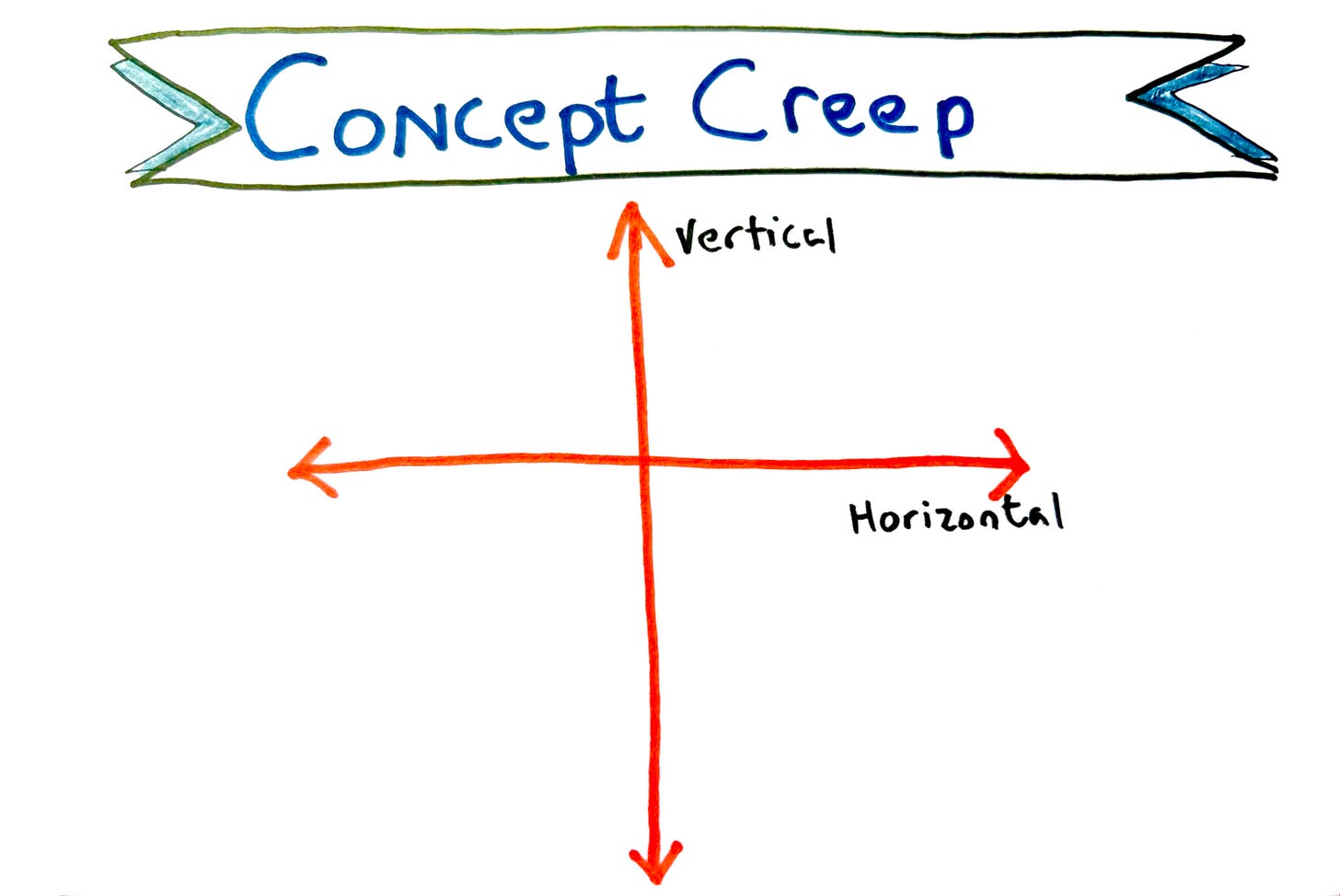Note: This article was originally published in Substack on 11 Oct. 2024
1. Research: Concept Creep
This is the original paper by Nick Haslam, 2016. Available in ResearchGate.
Haslam examines the phenomena of concept creep with six illustrations: Abuse, bullying, trauma, mental disorder, addiction, and prejudice.
Excerpted from previous post, FF139: ADHD (Part I), there are two types of extension in concept creep:
- Vertical: increasing inclusion of milder cases
- Horizontal: Increasing inclusion of quantitatively different things, which was previously treated as a different semantic description)At the end of the paper, Haslam elaborates on the implications of concept creep. One of them, interestingly, is a sort of backfire effect.

He says, “Concept creep runs the risk of creating a public impression of psychology as a field that exaggerates misery, inflates mental disorder, excuses misbehavior, and is oversensitive to perceived bias and discrimination.”
2. Web-Read: Gabor Maté Claims Trauma Contributes to Everything From
Cancer to ADHD. But What Does the Evidence Say
I’ve read Gabor Maté work in the past, and appreciated his perspective especially in the area of addiction.
However, I couldn’t quite shake off the uneasy feeling of the over-attribution of trauma to everything. I was discussing this with a colleague, and she had the same feeling about this. She sent me this article.
(Hat tip to Siao Geng).
3. Web-Read: Mental Health ≠ Wellbeing
Should the concepts of mental health and wellbeing be treat the same?
4. Book: Saving Normal
Former chair of the DSM-IV task force, who became a vocal critic of the diagnostic inflation in psychiatry. His main critique of the DSM-5 was the expansion to the area of normal.
It seems like a distant past when DSM-5 came about. If you are interested to look into this, I’ve saved a 2010 Wired article by Gary Greenberg on this topic: Inside the Battle to Define Mental Illness
5. Words Worth Contemplating:
“I’m an introvert, so that’s why I can’t.” No. Definitions are not reasons. [emphasis mine] Definitions are just your old responses to past situations.”
— Derek Sivers, in How to Live, p. 87.
If you would like to learn more topics that can help your professional development, subscribe to the Frontiers of Psychotherapist Development (FPD). On Frontiers Friday (FPD), we serve you directly to your Inbox highly curated recommendations each week.




Recent Comments